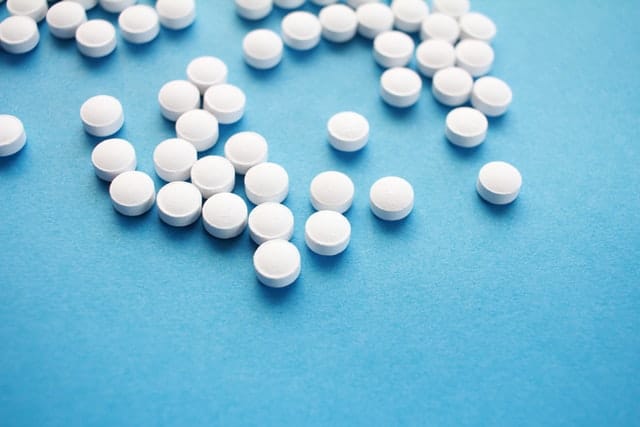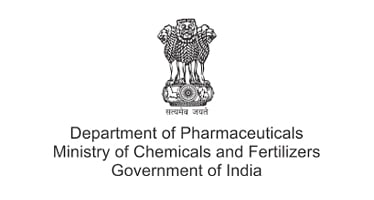Last Updated on January 4, 2021 by The Health Master
Revised guidelines for procurement of drugs
The Department of Pharmaceuticals (DoP) recently issued revised guidelines of Public Procurement Order (PPO) 2017 for the procurement of goods and services in pharma formulations.
The move is to further encourage ‘Make in India’ and promote the manufacturing and production of goods and services in India with a view of enhancing income and employment in the country.
Besides, the Department is also in the process of forming a committee which will be responsible for independently carrying the verifications of self-declaration and auditors/accountants certificate on a random basis.
Commenting on the revised guidelines, Nipun Jain, Chairman, Small and Medium Pharma Manufacturers Association (SMPMA) said, “It is a good move and it will certainly going to encourage the API manufacturers of India, to scale up their capabilities.

Since, the country imports nearly 80 per cent of required key APIs from other countries, this revision of the PPO 2017 specifying in Class I and Class II classification of the guideline, will encourage formulation companies, who are involved in the government procurement business, to source it from the local partners itself.
However, it again needs to be seen that how much price preference would be given to the Class I and Class II categories in the government tenders, but overall it is definitely going to boost the confidence of the Indian API manufacturers.”
Also read : ICMR: India successfully isolates and cultures UK-variant of virus strain
However, an industry observer, pointed out that almost all excipients are imported. So, will it be possible to have 80 per cent local content in formulations? Moreover, a fee of Rs 2 lakhs is to be paid to file a complaint in case of doubt on the claim of other parties. This is a rather high amount for a medium enterprise.”
The revised guideline specifies:
Local Content: It means the amount of value added in India should be the total value of the item procured, excluding net domestic indirect taxes and the value of imported content in the item including all customs duties as a proportion of the total value in per cent.
Formulation: In an exercise of provisions of para 5 of Public Procurement Order 2017 revision dated September 16, 2010, of DPIIT the minimum local content for pharma formulations are fixed as under:
I) Class I local supplier; a supplier or service provider whose is goods, services or works offered for procurement has total contents equal to or more than 80 per cent
2) Class II local supplier: a supplier or service provider, whose goods, services for work offered for procurement has local content more than 50 per cent, but less than 80 per cent
3) Non-local supplier: a supplier or service provider whose goods, services or works offered for procurement has local content less than or equal to 50 per cent
Also read | C-19 vaccines 110% safe, impotency rumours complete nonsense: DCGI
4. Verification of local content
a) The Class I local supplier class to the local supplier at the time of tender bidding or association shall be required to indicate the percentage of local content and provide self-certification that the item offered meets a local content requirement for class I local supplier or Class II local supplier as the case may be, they shall also give details of the location at which the local value addition is made
b) In cases of procurement for a value in excess of Rs 10 crores, the class I local suppliers or class II local suppliers shall be required to provide the certificate from the statutory auditor or cost auditor of the company in the case of companies or from a practising cost accountant for practising chartered accountant giving the percentage of local content.
A committee is also being formed for independent verification of self-declaration and auditors accountant certificate on a random basis and in the case of complaints.
It comprises:
1) Chairman and MD of Karnataka Antibiotics and Pharmaceuticals
2) Member representation from NIPER Ahmedabad
3) Member representation from NPPA
4) Member representation from CDSCO
5) Member – Joint Director Pricing, Department of Pharmaceuticals
“In case of reference of any complaint by the concerned bidder, there would be a fee of Rs two lakh for one person of the value of the pharma formulations being procured (subject to a maximum of Rs five lakh), whichever is higher to be paid by way of a demand draft, which needs to be deposited with the procuring entity along with the complaint by the complainant.
In case the complaint is found to be incorrect, the complaint fee shall be forfeited. In case, the complaint is upheld and found to be substantially correct, the deposited fee of the complainant would be refunded without any interest,” stated the order.
The above-mentioned guidelines will be applicable to all the Central sector schemes and centrally sponsored schemes for procurement made by states and local bodies in project or scheme, which is fully or partially funded by the Government of India.
The order further mentioned that all other provisions of Public Procurement Order 2017, as revised by the DPIIT, will be applicable and needs to be adhered by all procuring agencies for procurement of any pharma formulations. And the guideline will remain applicable until further orders, from the date of issuance.
The Health Master is now on Telegram. For latest update on health and Pharmaceuticals, subscribe to The Health Master on Telegram.
Follow and connect with us on Facebook and Linkedin
Go to main website, click here
Subscribe for daily free updates, click here


